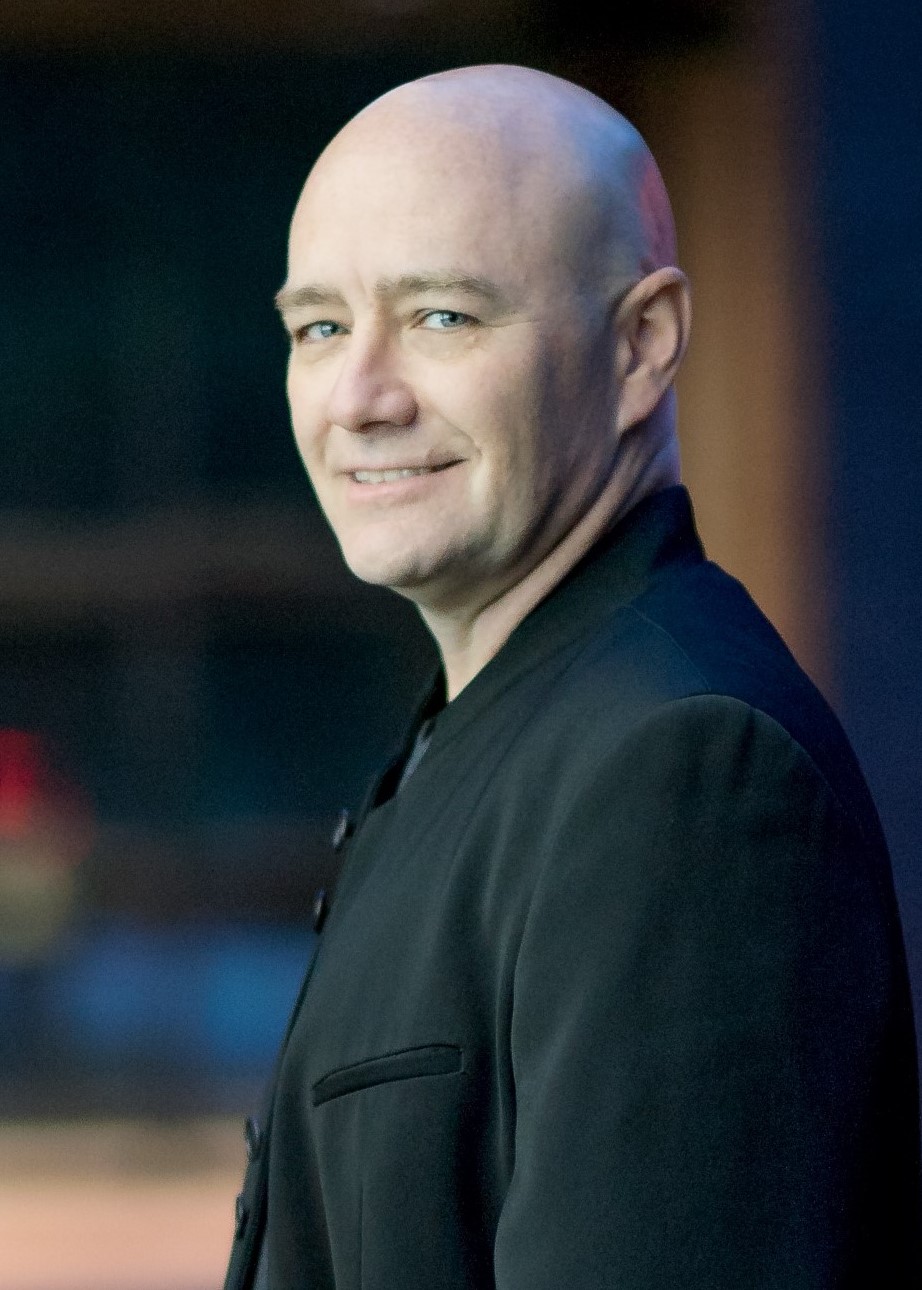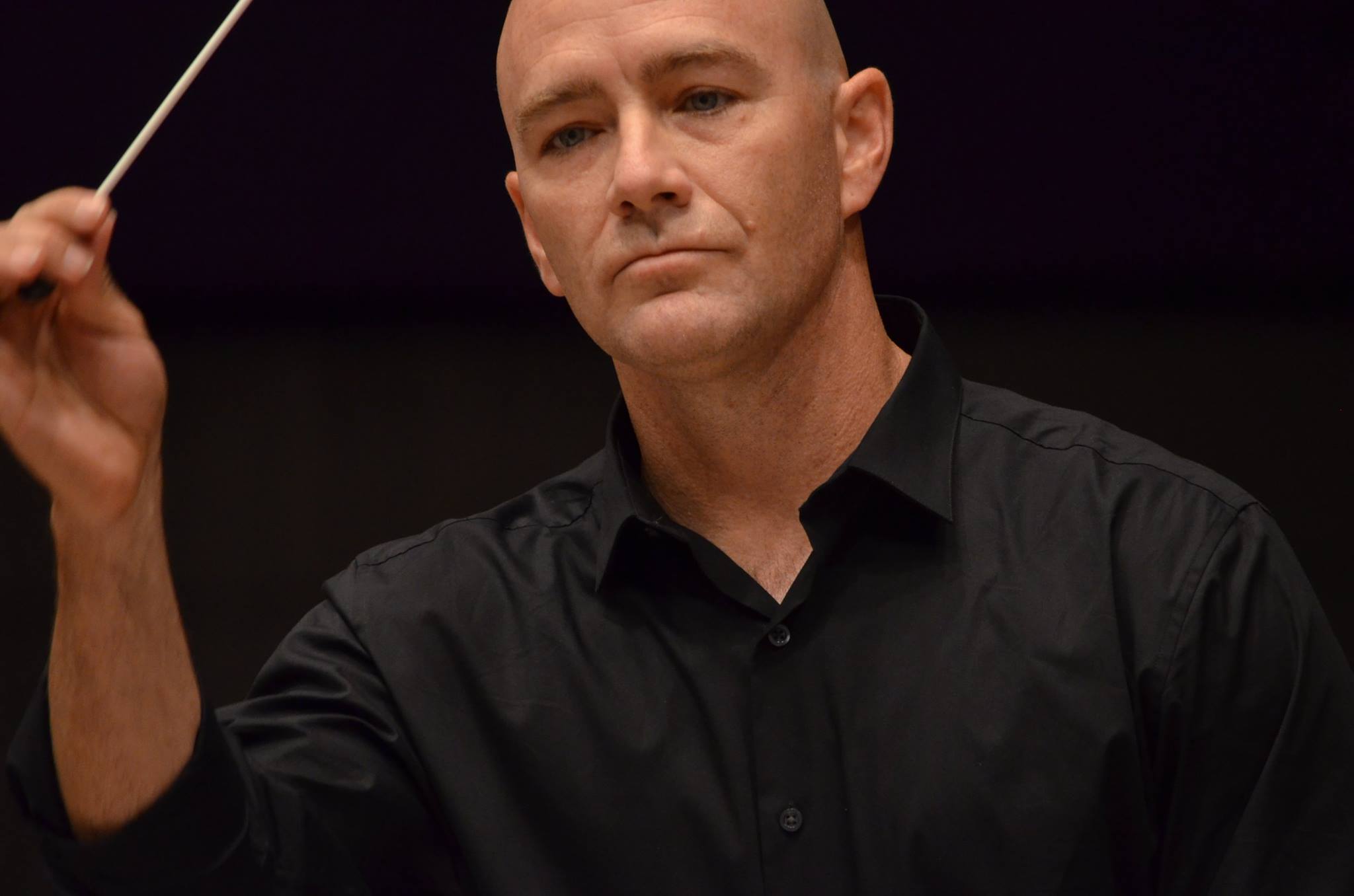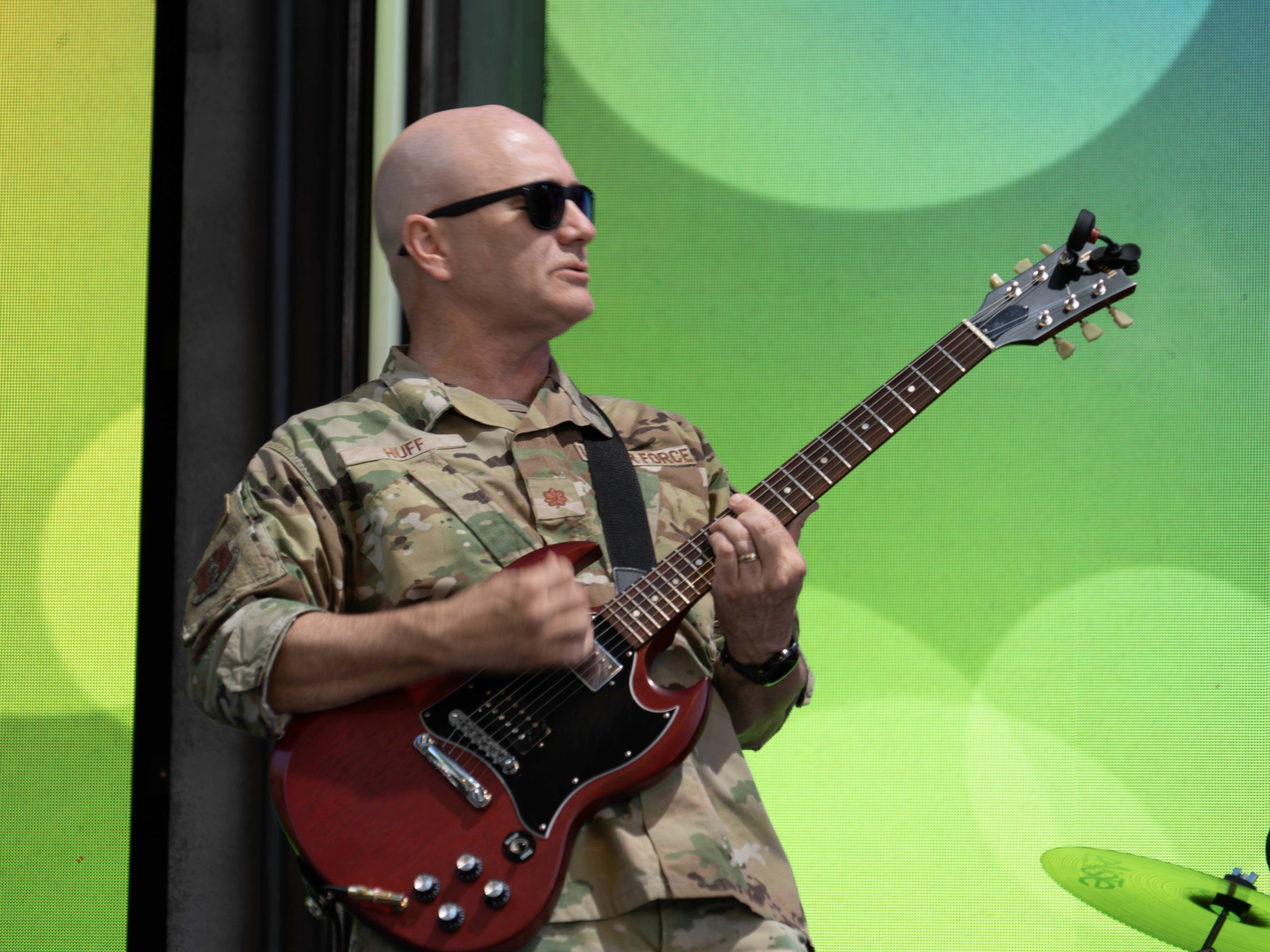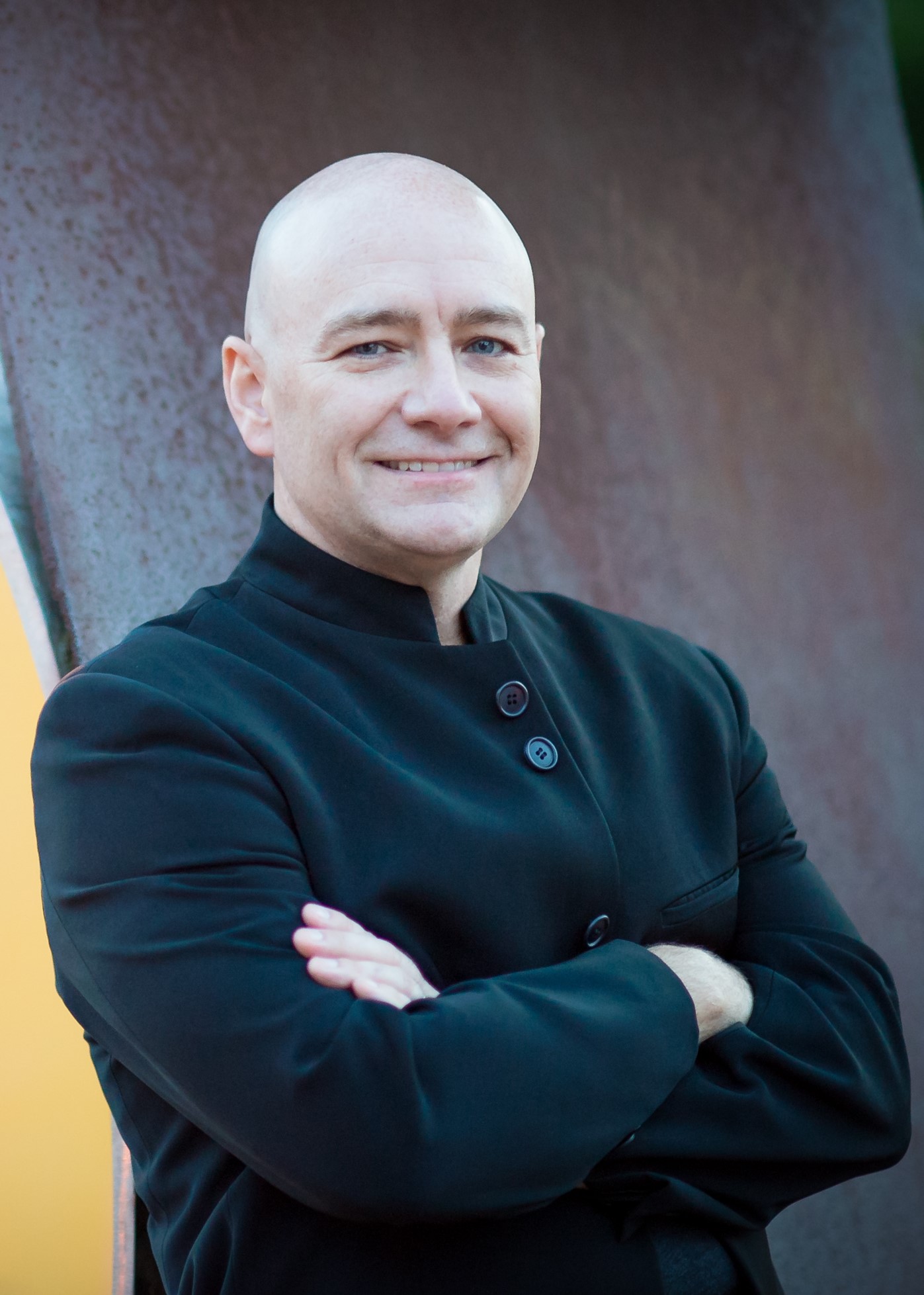We’re excited to introduce you to the always interesting and insightful Silas Huff. We hope you’ll enjoy our conversation with Silas below.
Silas, thanks for taking the time to share your stories with us today Can you talk to us about a project that’s meant a lot to you?
I trained as a classical musician (bachelors in classical guitar, masters in music composition, independent study of orchestral conducting), and started working as an orchestra conductor about 20 years ago. I was working in New York City as an opera producer and symphonic conductor for almost a decade when a colleague suggested I apply to be a conductor for the U.S. Army. I had little interest…I am not a marching band guy…I was, at that time, on staff at the Manhattan School of Music and Director of the Astoria Symphony Orchestra. I had never marched a day in my life. But I took the audition in Washington D.C. and I won the job. I almost turned it down, but at the last moment I decided to try it out. After all, if I hated it I could get out in a few years and go back to New York. That started a very meaningful chapter in my career, one in which I learned the true importance of music–what music means to different people. I saw old WWII vets moved to tears, kids inspired by the soldier-musicians they heard, and foreign nationals become more open to discussion with me and other military personnel because of our music.
The greatest moment of my military career (perhaps my entire musical career) was at Bagram Air Field, Afghanistan. I was on tour with an Army rock band, and a warrant officer approached me and requested his favorite song. We didn’t have it ready, so we played another song by the same band. He seems moderately satisfied. We went on the road to some other locations for a few days, and the next time we landed at Bagram, we did another concert. I saw that same guy and told the band, “Play the song!” They had learned it since the last show at Bagram. That officer seemed moved, and he approached me after the concert to say, “I’m on my third deployment and my second divorce. I was thinking about killing myself, but now I think I won’t.”
I was flabbergasted. Even though I had been a professional musicians for fifteen years, I didn’t realize music had that kind of power. And I’ve approached every performance since–hundreds of concert–differently.

Awesome – so before we get into the rest of our questions, can you briefly introduce yourself to our readers.
My mission to make the world a better place by sharing my passion for music, teaching young musicians how perform at the highest level, and educating people about music. I started as a guitarist in a high school rock band, but today I conduct professional orchestras around the world and teach at the University of Texas at Arlington. I also organize workshops around the world for young conductors. To date, I have organized over 50 such workshops and served several hundred young musical leaders-in-training.
Early in my career, I learned the value of being entrepreneurial and thinking outside the box, and somewhere along my path I discovered the philosophy of servant leadership (possibly on that amazing day in Afghanistan). In order to accomplish one’s mission, you have to take every avenue imaginable (and invent some new ones). You have to ask for help and never stop trying to improve yourself. And then, when you get pretty good at what you do, you have to help younger people do it. Selfless service is the secret to my success. Through other people’s success, I feel successful. One of my first mentors in the Army was an old Sergeant Major who told me one of the wisest things I’ve ever heard: “Your soldiers are your credentials.”
So…your accomplishments are your credentials. The people you inspire are your credentials. The impacts you have on your industry and community are your credentials.

Are there any books, videos, essays or other resources that have significantly impacted your management and entrepreneurial thinking and philosophy?
I have studied a lot of leadership philosophies. The ones I have found most influential are John Heider’s “The Tao of Leadership,” which is a re-imagining of Lao Tzu’s “Tao Te Ching” for leaders. It applied to politicians, teachers, religious leaders, military leaders, parents…and orchestra conductors. There are many wise lessons contained within. When I read it, I simply changed the word “leader” to “conductor,” and “group” to “orchestra,” and the book applied to me very directly.
I also enjoy the writings of Simon Sinek (“Start With Why,” “Leaders Eat Last,” and “The Infinite Game”) and several other business and military leaders.
Videos: I love the first TED talk Simon Sinek gave (I think this is it: https://www.youtube.com/watch?v=qp0HIF3SfI4), and a fun animated video that accompanies a talk given by retired Navy commander David Marquet called “Greatness”: https://www.youtube.com/watch?v=HYXH2XUfhfo&t=6s
Here is the bibliography I share with student conductors:
Meier, Gustav. The Score, the Orchestra, and the Conductor.
Rudolph, Max. The Grammar of Conducting, 3rd edition.
Schuller, Gunther. The Compleat Conductor
Zander, Benjamin. The Art of Possibility.
Battisti, Frank L. On Becoming a Conductor: Lessons and Meditations on the Art of Conducting.
ABOUT MUSICAL LEADERSHIP:
Wittry, Diane. Beyond the Baton: What Every Conductor Needs to Know.
Battisti, Frank L. “Grand Masters Series: Teaching Music the Leadership Component.” Music Educators Journal vol. 85, no. 6 (1999): 38-50.
Wis, Ramona M. The Conductor as Leader: Principles of Leadership Applied to Life on the Podium.
Young, Dennis. “Organization and Orchestra: Lessons from the Pit.” Journal of Policy Analysis and Management vol. 1, no. 2 (1982): 264-67.
Armstrong, Susan, and Scott Armstrong. “The Conductor as Transformational Leader.” Music Educators Journal vol. 82, no. 6 (1996): 22-25.
Atik, Yaakov. “The Conductor and the Orchestra: Interactive Aspects of the Leadership Process.” Leadership & Organization Development Journal vol. 15, issue 1 (1994): 22-28.
Bowman, Richard F. “Teachers as Leaders.” The Clearing House vol. 77, no. 5 (2004): 187-89.
ABOUT LEADERSHIP (NOT MUSICAL):
Heider, John. The Tao of Leadership: Lao Tzu’s Tao Te Ching Adapted for a New Age.
Dreher, Diane. The Tao of Personal Leadership.
Sinek, Simon. Start With Why: How Great Leaders Inspire Everyone to Take Action.
Sinek, Simon. Leaders Eat Last: Why Some Teams Pull Together and Others Don’t.
Sinek, Simon. The Infinite Game. New York: Penguin Random House LLC, 2019.
Bennis, Warren. On Becoming a Leader.
Collins, Jim. Good to Great.
Covey, Stephen R. Principle-Centered Leadership.
Covey, Stephen R. The Seven Habits of Highly Effective People.
Marquet, L. David. Turn the Ship Around!: A True Story of Turning Followers into Leaders.

We often hear about learning lessons – but just as important is unlearning lessons. Have you ever had to unlearn a lesson?
I had to learn that my work is about other people. Another way to say this: I had to unlearn that my work is not about me. There’s not much back story. Like many young professionals, I was focused on my success, my training, impressing people, and advocating for myself. First as a school music teacher, later as an orchestra conductor, and finally as a military band commander, I slowly discovered that my work is about serving others. And my worked improved. The “product” improved. People wanted to follow me. I received the accolades and admiration I had sought when I was younger. It was an amazing–and very slow–epiphany.
Contact Info:
- Website: https://www.silashuff.com/
- Instagram: https://www.instagram.com/maestrohuff/
- Facebook: https://www.facebook.com/silasnhuff
- Linkedin: https://www.linkedin.com/in/silashuff/
- Other: https://www.maestromasterclass.com/


Image Credits
Kim Kiely Photography
U.S. Air Force


